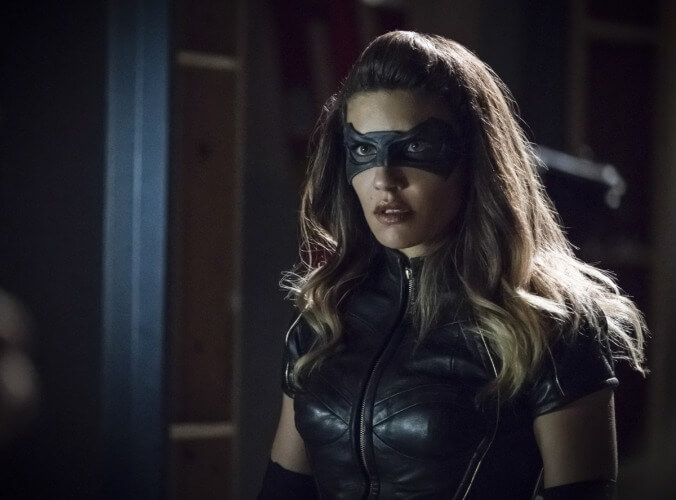Well, crap: Arrow’s flashbacks are back

Flashbacks have been a part of Arrow’s DNA from the very beginning. At times they’ve been vital, at others, entertaining. They’ve been sometimes surprising and even occasionally moving. But they’ve also been filler, and they’ve been filler with some frequency over the last several seasons. When the bombs on Lian Yu went off, it was easy to hope that the whooshing flashback sound might blow up, too.
It appears that a reduction in whooshing is the best we can hope for—and to be fair, the flashbacks in “Deathstroke Returns” are far from the worst that Arrow has to offer. Still, they’re not great. It’s not that Slade’s backstory is inessential. Far from it. It’s that the end result could have been achieved in half the time, if not less. Please, by all means, show us things that happened months or years ago. Give us insight into character and lean into theme. Just please, no more filler.
“Deathstroke Returns” does a fine job of several things. It marks the return of Manu Bennett’s Slade Wilson, and that’s pretty much always good. It ties Oliver’s big arc — leaving the hood behind so he can be a father to a son who just lost the mother who raised him — to Slade’s current story. It give Juliana Harkavy’s Dinah something to do besides glower at Dig. There are a few good fight scenes, and William gets something that’s almost a punchline. That’s all welcome. Still, overall, there’s something about this episode that feels thin. It’s as though this was always intended to be the first part of a two-parter, only somewhere along the road the Arrow writing team realized they just didn’t have enough stuff to fill part one. The result: some time spent watching Slade Wilson load his camping equipment into a trunk.
When Arrow’s flashback stories work, it’s because the events of the past are directly tied to the present — not because of events of the plot, but because of the inner lives of the characters. The best manage to do both, making a story about Oliver’s relentless guilt also a chance to set up some big reveal. That’s not the case here. There’s nothing we learn from Slade’s father-son-target camping trip that can’t be intuited through the choices Slade makes and the performance Bennett gives. It’s all there: the distance, the regret, the self-disgust, the desperation. The most important aspect of the flashback story, the revelation that Slade’s tense reconnection trip with his son is actually in service of a mission that results in a man’s death, could be conveyed in conversation, recollection, or even one single flashback. Slade banters with his son about fish, slightly thawing a frosty atmosphere, denies that he’s anything but a pilot, then sends a message that a target has been sighted. Mission accomplished.
 Keep scrolling for more great stories.
Keep scrolling for more great stories.
